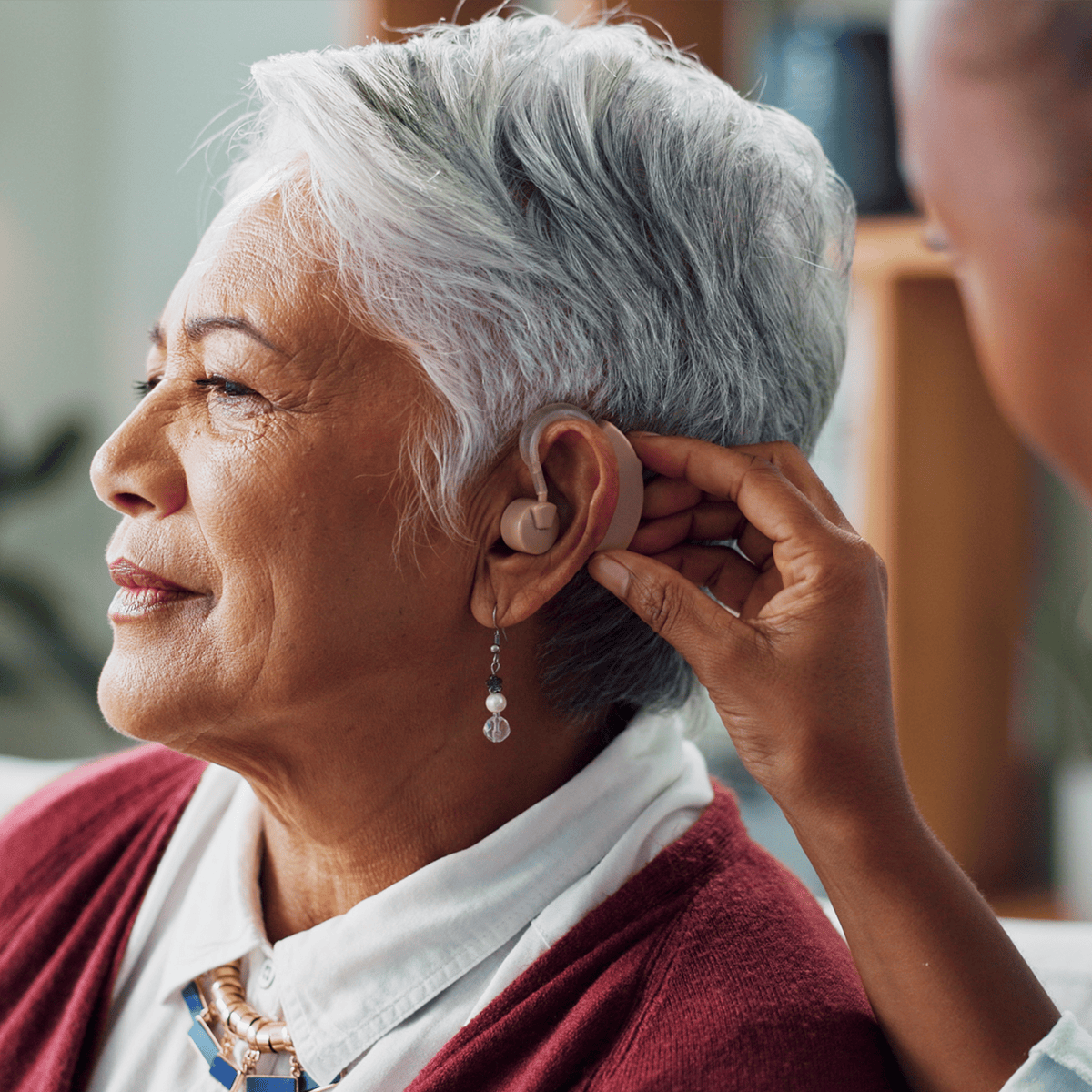Can a Tooth Infection Cause Hearing Loss?

Key Takeaways
- A tooth infection can spread bacteria to other parts of the body, including the ears, which may lead to hearing issues.
- Aging, a weakened immune system, and common health conditions increase the likelihood of dental infections in seniors.
- Warning signs include tooth pain, facial swelling, and changes in hearing.
- Regular dental care, a healthy diet, staying hydrated, and avoiding smoking can help prevent.
- If you experience symptoms, seek medical attention right away.
It might sound surprising, but a tooth infection could actually affect your hearing.
This connection between oral health and hearing issues is more common than you might think, especially in seniors. Your oral health plays a large role in your overall well-being, including the health of your ears.
Let’s explore how this happens, how you can prevent it, and the warning signs to look out for.
Understanding Tooth Infections
Tooth infections are very common in older adults. According to the National Institutes of Health, 96% of seniors have experienced some sort of tooth decay or infection in their lifetime.
Tooth infections occur when bacteria invade the tooth, causing pain and discomfort. Most of the time, this happens because there’s a cavity, gum disease, or a broken tooth.
When a tooth is infected, it might feel sore, swollen, or very sensitive to hot and cold foods. Sometimes, you might notice swelling in your face or even have a bad taste in your mouth. If you experience any of these signs, schedule an emergency appointment with your dentist to have it treated.
How Oral Health Affects the Ears
Now, you might wonder how a tooth infection can cause hearing loss. When an infection occurs in the mouth, the bacteria can sometimes travel to other parts of the body, including the ears.
As the bacteria travels, it can cause problems in other parts of your body, such as inflammation in your blood vessels. When this happens, it can cause your blood vessels to narrow, making it harder for blood to flow freely.
If blood can’t flow freely to the blood vessels of your inner ear, it negatively affects your hearing or even damages the hair cells in your inner ear that enable you to hear clearly. This helps explain the connection between teeth and tinnitus (ringing in the ears).
Why Seniors Are More at Risk
Several factors make us more vulnerable to both dental problems and hearing issues as we age:
- Weaker immune systems make it harder to fight off infections.
- Common health conditions, such as diabetes, elevate the risk of infection.
- Years of wear and tear on our teeth create more opportunities for bacteria.
- Side effects from medications can impact both dental and ear health.
Warning Signs That Shouldn’t Be Ignored
Luckily, your body will often give you signs of an infection, so it’s important not to ignore them. Watch for these dental warning signs: tooth pain, facial swelling, or sensitivity to hot and cold foods. You might also notice difficulty opening your mouth, swollen gums, a bad taste, or throbbing in your tooth area. Call your dentist or healthcare provider right away if these occur.
Similarly, hearing loss can present with its own set of symptoms, including constant earaches, trouble hearing in loud places, and a need to ask people to repeat themselves. Feeling dizzy, ringing in the ears, or a feeling of fullness or pressure in the ears are also common symptoms.
These signs could point to something more serious, such as an infection that could benefit from seeing a doctor or dentist.
Preventive Care Tips for Older Adults
You don’t have to wait for a problem to take care of yourself. Making oral health part of your daily routine and lifestyle helps create good habits that could prevent many issues before they start. Pay attention to your body’s signals and seek help early when needed.
Here are four key ways to protect your dental and hearing health:
- Daily care: Brush twice daily with fluoride toothpaste and floss regularly to remove food and plaque between teeth.
- Professional attention: Visit your dentist every six months for check-ups and professional cleanings.
- Healthy choices: Maintain a balanced diet rich in fruits and vegetables. Stay hydrated, limit caffeine and alcohol, and avoid smoking, which damages both oral and overall health.
- Stay alert: If something feels wrong, don’t hesitate to call your healthcare provider. Early intervention can help prevent serious complications.
What to Do If You Suspect a Connection
If you think a tooth infection might be affecting your hearing, it’s important to act fast. Once hearing loss happens, it can be difficult, or impossible, to reverse. Here’s what you can do:
- See a dentist: Visit your dentist to get the tooth checked. They can provide treatment to clear the infection, which might help improve any related ear problems.
- Visit a doctor: If your hearing doesn’t improve, see a doctor or an ear, nose, and throat specialist. They might run tests to check if the infection has spread to your ears.
- Follow treatment plans: If you’re concerned about the connection between gum disease and tinnitus or hearing loss, it’s crucial to follow your doctor’s treatment plan. This may involve medications or specific procedures to address infections and improve your oral health. Not following your doctor’s recommendations could lead to complications.
- Stay informed: Learn more about how oral health affects your entire body, including your ears. The more you know, the better you can protect your hearing health.
Although it may seem surprising at first, it’s easy to see why a tooth infection could have a significant impact on your hearing health. By understanding the connection between a tooth infection and hearing loss and taking steps to maintain good oral health, you can better protect your hearing and overall well-being.
Remember, taking care of your teeth is not just about having a bright smile; it’s about staying healthy in every way.








